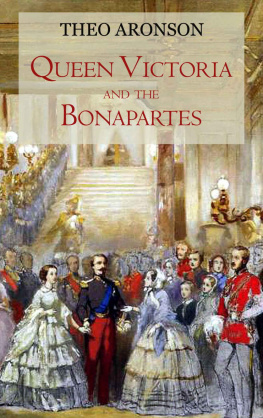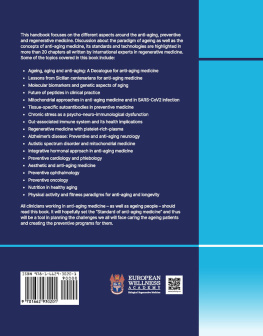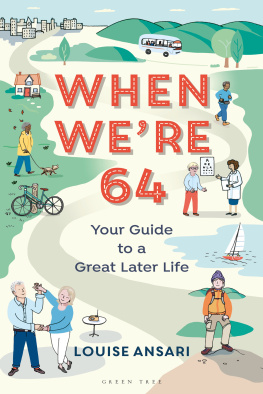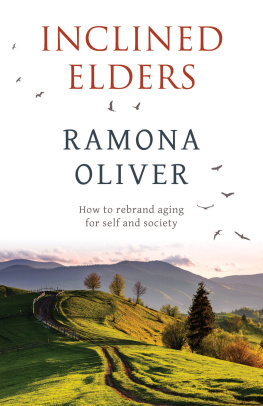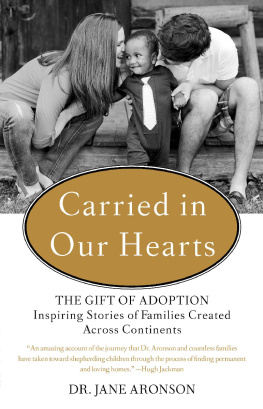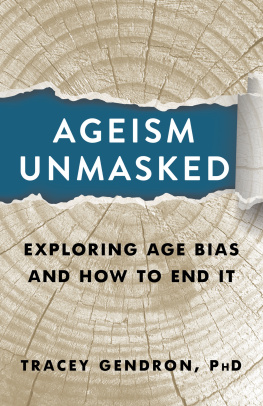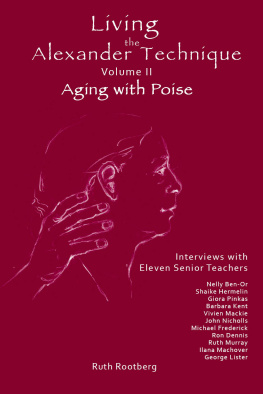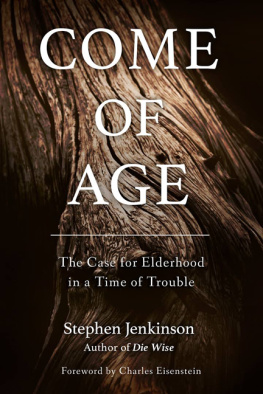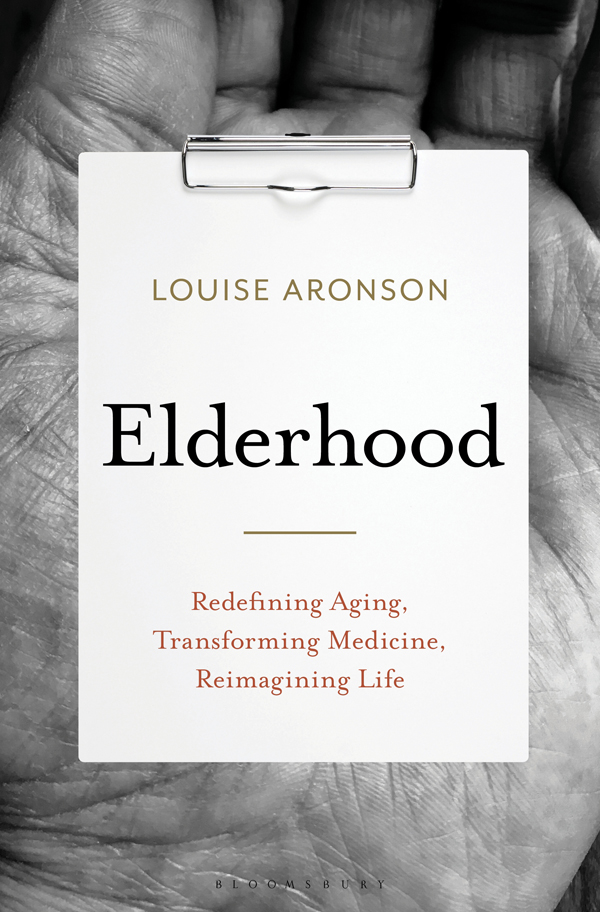Contents
Guide
Pagebreaks of the print version
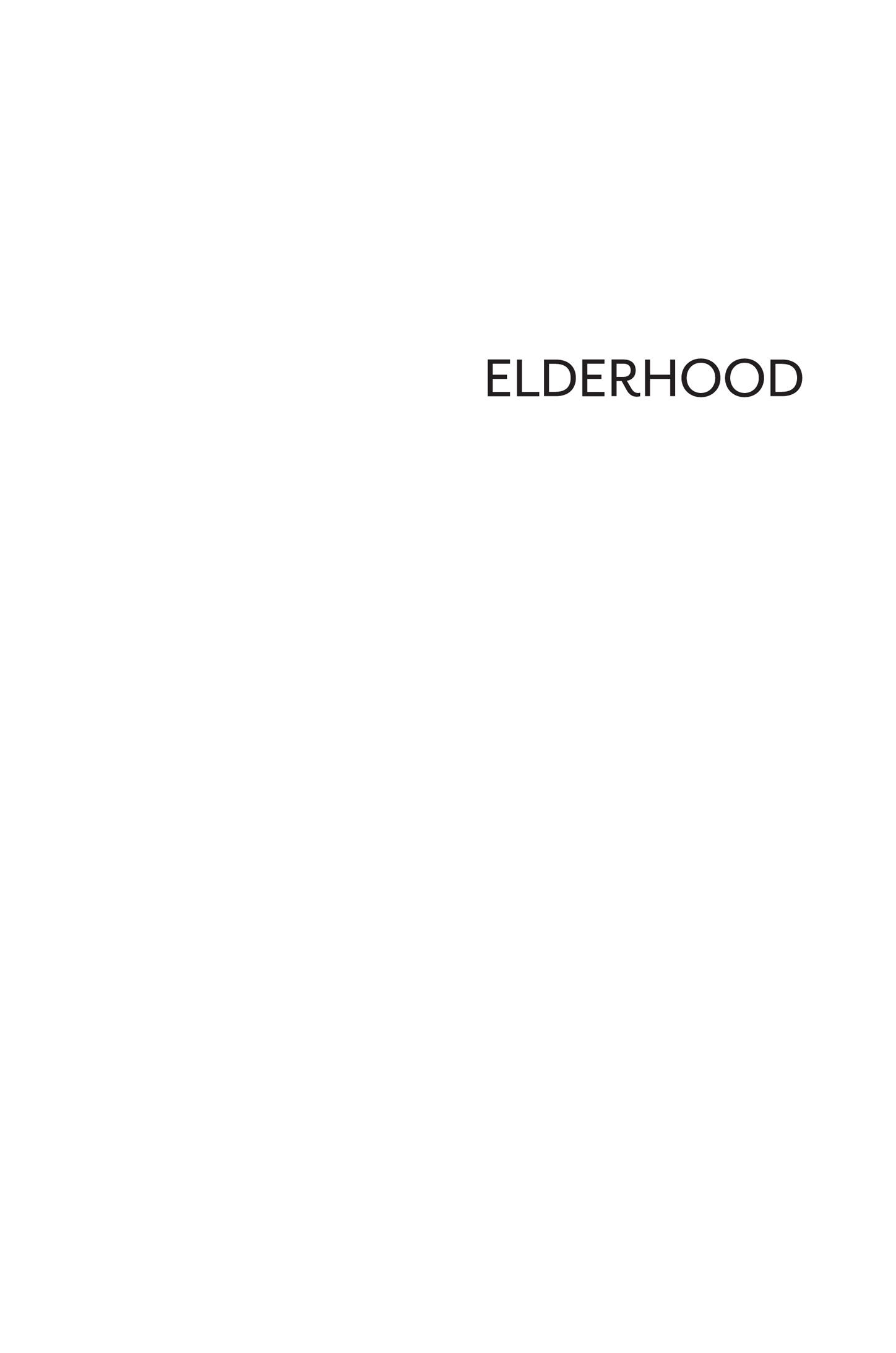

For my mother
and
for Jane
BY THE SAME AUTHOR
A History of the Present Illness: Stories


Old age will only be respected if it fights for itself, maintains its rights and asserts control over its own to its last breath.
CICERO
CONTENTS
MEMORIES LESSONS
HISTORY SICK ASSUMPTIONS
HOUSES RESURRECTION CONFUSION STANDARDS OTHER
NORMAL DIFFERENT
EVOLUTION PERVERSIONS REJUVENATION GAPS CHOICES
TRAUMA MODERN INDOCTRINATION MISTAKES COMPETENCE SHAME BIAS
OBLIVIOUS LANGUAGE VOCATION DISTANCE VALUES TRUTH BIOLOGY ADVOCACY OUTSOURCED ZEALOT
STAGES HELP PRESTIGE COMPLEXITY COMBUSTION SEXY DISILLUSIONMENT PRIORITIES SYMPATHY
AGES PATHOLOGY COMMUNICATION FREEDOM BACKSTORY LONGEVITY CHILDPROOF RECLAMATION
EXCEPTIONAL FUTURE DISTRESS WORTH BELOVED PLACES COMFORT TECH MEANING IMAGINATION BODIES CLASSIFICATION
INVISIBILITY DUALITY CARE EDUCATION RESILIENCE ATTITUDE DESIGN HEALTH PERSPECTIVE
TIME NATURE HUMAN CONSEQUENCES ACCEPTANCE
The aging body is never just a body subjected to the imperatives of cellular and organic decline, for as it moves through life it is continuously being inscribed and reinscribed with cultural meanings.
Mike Featherstone and Andrew Wernick
This began as an old age book, and then became more than that, including a book about medicine and what it means to be a human being. Its evolution surprised me, as a doctor and as an aging person. It turned into something at once conventional and countercultural, fact- and story-based, affectionate and opinionated, part battle cry and part lament, a verbal potpourri of joy, wonder, frustration, outrage, and hope about old age, medicine, and American life.
The stories in this book are true to the best of my recollection. Hearing about the same crisis from a doctors perspective or a patients, and from a nurses or administrators or family members, the same events can sound unrelated. Memory is flawed, malleable, and significant. Perspective depends on where youre standing and who you are, on context, role, attitude, and values.
Given how much variation in story occurs in the immediate aftermath of an event, it can only be more so after time passes. I have done my best to be both accurate and true to my own thoughts and feelings. I have changed patient names throughout the book and often avoided mention of colleagues or friends names. Where I lacked a patients or familys permission to tell their story, I have changed select telling details. Those measures were taken not only in keeping with core tenets of medicine and the stipulations of federal health privacy laws but also out of profound gratitude for the many people who entrusted me with their well-being and in so doing taught me about what old age is, what it should be, and what it could be.
This book also owes a substantial debt to many scientists, scholars, and writers, past and present. These powerful thinkers have created an enormous body of work on old age that should have far more influence on our aging lives and policies. One of my great hopes for this book is that it leads readers to the work of historians like Thomas Cole and Pat Thane; anthropologists, psychologists, and sociologists like Sharon Kaufman, Becca Levy, and Carroll Estes; physicians like Robert Butler, Bill Thomas, and Muriel Gillick; and more scientists and writers than I can list but whose work appears in these pages or in the notes and bibliography at the end of the book.
Theres just one more thing you need to know before turning the page or swiping to the next screen: this book doesnt always walk a straight line from here to there. It dancesor so I hope.
Our humanity is our burden, our life; we need not battle for it; we need only to do what is infinitely more difficultthat is, accept it.
James Baldwin
Like many doctors, I went into medicine because I wanted to help people. And like many medical students, I quickly discovered that medical education is more about chemical structures and biology, diseases and organs, than about humanity and healing.
Midway through my first year, I knew every dean and had a collection of catalogs to other graduate programs: public health and medical anthropology, English, policy, and psychology. This wasnt entirely surprising; as a history major whod chosen my undergraduate college for its lack of math or science requirements, I was an unlikely medical student. But I believed medicine would allow me to make a difference in peoples lives in ways those other fields might not. Still, for two years I kept the glossy booklets hidden in my dorm room, and late at night I pored over their disparate course offerings with the zeal of a kid set free in a candy shop. My secret catalogs provided glimpses of a worldview absent from my medical textbooks and the lectures I attended. Here were courses and professions that acknowledged the particularity, complexity, and ambiguity of human lives without reducing them to disembodied cells, parts, and processes.
In our third year, my class entered the hospital: a gauntlet of challenges and humiliations. It sometimes seemed as if the frequent changes in place, people, and specialty had been designed to keep us anxious and off-balance. We learned to work without sleeping, eating, or urinating, without fresh air or clean clothes or feelings of horror or disgust, without tears or time off. It was brutal, and yet, for me, so much better than the two years before. At last my days included learning about actual people with stories no less seductive or meaningful than those in my favorite novels. My hospital work gave me some of the deep human understanding that great literature provides and combined it with opportunities to be useful to people in need. Once I began taking care of patients, medicine became exactly what Id hoped for when I chose it over all those other fields that more inherently interested me and for which I seemed more naturally suited. I returned home each night feeling not only that my time had been well spent but also that my life mattered in a larger way, even if my contribution to the larger world was itself small. It was a wonderful feeling.
Nearly thirty years later, I still get that pleasure from being a doctor. I also now know that medicine routinely undermines its mission by dismissing the sorts of knowledge I looked for in those course catalogs. So many parts of our complicated human lives dont easily lend themselves to measurement or experimentation. Although science provides invaluable information, and technology can be transformative, both are beholden to the interests and beliefs of the relatively few humans who wield them, and neither is well suited to addressing critical aspects of human life, from individuality to suffering to wellness. This is especially true in the years after a person turns sixty, the ages of the patients I care for as a geriatrician. That may be why, though I thought I was working for them, my patients ended up teaching me what questions really matter as we age and how people can increase their chances of living well and meaningfully throughout their lives.


